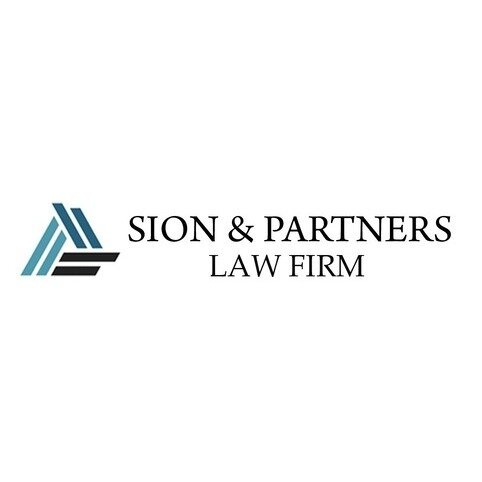Best Education Law Lawyers in Kazakhstan
Share your needs with us, get contacted by law firms.
Free. Takes 2 min.
List of the best lawyers in Kazakhstan, Kazakhstan
About Education Law in Kazakhstan, Kazakhstan
Education Law in Kazakhstan governs the policies, structures, and administrative procedures related to education in the country. It is designed to ensure the provision of high-quality education, uphold the rights of students and teachers, and establish standards for educational institutions. In Kazakhstan, education is regarded as a vital aspect of the nation's development, and thus, the government has implemented numerous laws to regulate and monitor the education sector. This includes laws on inclusive education, technical and vocational education, as well as general secondary and higher education.
Why You May Need a Lawyer
There are several situations where individuals or institutions might need a lawyer specializing in Education Law. This includes disputes regarding admission procedures, issues of discrimination or unequal treatment, concerns over educational standards, or problems related to education financing. Both students and educators may face legal challenges, such as disciplinary actions or employment disputes, and these can require legal expertise to resolve efficiently. Furthermore, educational institutions might need legal advice on compliance with national regulations or when developing international collaborations.
Local Laws Overview
Kazakhstan's legislative framework concerning Education Law includes several key regulations that stakeholders should be aware of:
- The Law on Education, which outlines the principles and objectives of the national education system.
- The Law on State Youth Policy, which includes regulations impacting students and youth engagement in educational activities.
- Regulations on inclusive education aimed at promoting equal educational opportunities for individuals with disabilities.
- Standards for higher education institutions, governing issues like accreditation, degree recognition, and academic freedom.
- Rules regarding technical and vocational training institutions, ensuring alignment with labor market demands.
Frequently Asked Questions
1. What rights do students have under Kazakhstani Education Law?
Students in Kazakhstan are entitled to equitable access to education, protection against discrimination, and the right to participate in educational governance processes.
2. How does Kazakhstan ensure the quality of education?
The government ensures quality through regulatory oversight, accreditation processes, and continuous monitoring and evaluation of educational institutions.
3. What is the policy on inclusive education in Kazakhstan?
Inclusive education is legally mandated, aiming to integrate students with disabilities into standard educational settings and provide them with necessary support.
4. Can foreign educational institutions operate in Kazakhstan?
Yes, foreign educational institutions can operate in Kazakhstan but must comply with local regulations and undergo an accreditation process.
5. What options do I have if I face discrimination in education?
If you face discrimination, you can file a complaint with the educational institution or seek legal assistance to address the issue through administrative or judicial channels.
6. What are the legal requirements for homeschooling?
Homeschooling is permissible under Kazakhstani law, but parents must ensure that educational standards are met and students may be subject to periodic assessments.
7. How are educational institutions hierarchized in Kazakhstan?
The education system is hierarchized into pre-school, primary (basic), secondary, professional (technical/vocational), and higher education tiers governed by respective standards and regulations.
8. Are private educational institutions regulated differently?
Private institutions must comply with general educational standards but are afforded certain autonomies concerning curriculum, provided they adhere to legal requirements.
9. How is student data privacy protected?
Student data is protected under general data privacy regulations applicable nationwide, ensuring confidentiality and lawful processing of personal information.
10. Can legal issues arise from online education platforms?
Yes, online education platforms must align with Kazakhstani educational standards, and issues can arise regarding credibility, content delivery, and student assessment.
Additional Resources
The following resources might be helpful for individuals seeking more information or assistance related to Education Law in Kazakhstan:
- The Ministry of Education and Science of Kazakhstan, responsible for national educational policy implementation.
- Kazakhstan Human Rights Commissioner, which can provide guidance and assistance on discrimination and rights violation in education.
- National Center for Quality Assurance in Education, overseeing the accreditation and quality assurance of educational institutions.
- Local civil society organizations that advocate for education rights and reform.
Next Steps
If you need legal assistance in Education Law, consider the following steps:
- Gather all relevant documentation related to your educational issue or dispute.
- Consult with a lawyer who specializes in Education Law for personalized legal advice.
- Contact relevant governmental bodies if the issue involves administrative regulations or rights violations.
- Seek support from local advocacy groups that can provide guidance on legal processes in education-related cases.
Lawzana helps you find the best lawyers and law firms in Kazakhstan through a curated and pre-screened list of qualified legal professionals. Our platform offers rankings and detailed profiles of attorneys and law firms, allowing you to compare based on practice areas, including Education Law, experience, and client feedback.
Each profile includes a description of the firm's areas of practice, client reviews, team members and partners, year of establishment, spoken languages, office locations, contact information, social media presence, and any published articles or resources. Most firms on our platform speak English and are experienced in both local and international legal matters.
Get a quote from top-rated law firms in Kazakhstan, Kazakhstan — quickly, securely, and without unnecessary hassle.
Disclaimer:
The information provided on this page is for general informational purposes only and does not constitute legal advice. While we strive to ensure the accuracy and relevance of the content, legal information may change over time, and interpretations of the law can vary. You should always consult with a qualified legal professional for advice specific to your situation.
We disclaim all liability for actions taken or not taken based on the content of this page. If you believe any information is incorrect or outdated, please contact us, and we will review and update it where appropriate.








